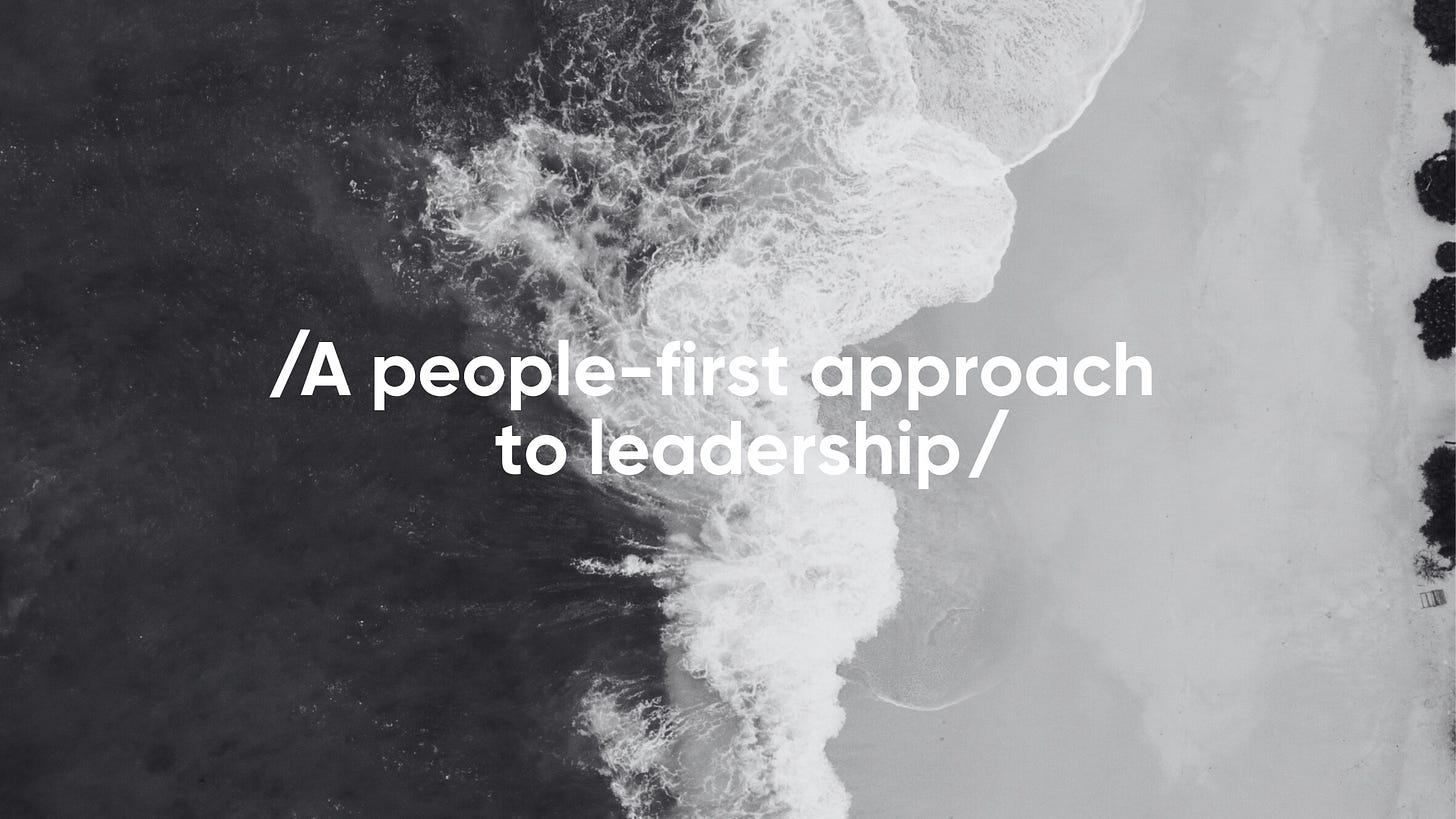The Management Equation
Balancing People and Processes for Effective Leadership
In today’s fast-paced business world, exceptional management goes beyond overseeing daily tasks. It requires a careful balance of skills that focus on the people within the business, not just the processes. This is where my Management Equation comes into play — a framework built on seven core qualities that empower managers to genuinely lead their teams.
Traditional management training often focuses on following processes, meeting targets, and making decisions in a structured way. But the truth is, leadership is more about connecting with people than it is about following a rigid formula. The Management Equation recognises that by investing energy into relationships, you can drive better results and build a stronger, more cohesive team.
In my experience, the most effective managers understand that true success comes from creating an environment where their team can thrive. It’s about being present, listening actively, and making decisions that are in the best interest of both the people and the business. This balance is key to fostering trust, and transparency, and ultimately achieving outstanding results.
The Seven Core Qualities
My Management Equation is built on seven core qualities:
Empathy, Compassion, Honesty, Decision-making, Communication, Active Listening, Resilience
These qualities are not just theoretical ideas, they are practical tools that managers can develop over time. Each of these attributes can be honed with practice, much like a muscle that gets stronger the more you use it.
The Equation
In this approach, we quantify the effectiveness of management through the Management Equation:
Here, 'Energy In' represents the collective effort, creativity, and resources invested by our team. The 'Average Quality' is the average score of the seven qualities, reflecting the overall effectiveness of our management practices. This equation encapsulates our belief that balanced and holistic management leads to superior 'Delivery Out,' ensuring we consistently exceed client expectations."
This equation serves as a reminder that balanced and holistic management leads to better outcomes. It shifts the focus from managing tasks to leading people in a way that nurtures their growth and, in turn, drives the success of the business.
Bringing the Equation to Life
To see how this framework works in action, we often apply the Management Equation in real-life scenarios. For example, when working on a high-stakes project like a product launch with a tight deadline, limited budget, and high client expectations, it’s crucial to lean on these seven qualities.
Empathy
What: Empathy is the ability to understand and share the feelings of another. It helps in building strong, trusting relationships within the team.
How: Active listening, acknowledging others' feelings, and showing genuine interest.
Scenario: Imagine a team member is struggling with workload. By understanding their situation and offering support, we can foster a more collaborative environment.
Compassion
What: Compassion in leadership involves being aware of others' needs and acting to help them. It goes beyond empathy by including a desire to alleviate others' suffering.
How: Being approachable, showing kindness, and offering help.
Scenario: A team member has a family emergency. Showing compassion by providing flexibility can greatly impact their loyalty and performance.
Honesty
What: Honesty builds trust and integrity. It’s crucial for transparent and effective communication with day-to-day comms and also with feedback.
How: Being truthful, admitting mistakes, and maintaining transparency.
Scenario: Admitting a project delay early and working on a solution transparently builds trust with clients.- Honesty maintains transparency with the client, building trust even if things get tough.
Decision making
What: Effective decision-making involves analysing information, considering options, and choosing the best course of action.
How: Gathering relevant data, considering different perspectives, and evaluating risks. Being objective.
Scenario: Weighing the pros and cons of of implementing something that achieves 95% of the objective sooner, rather than delaying action completely causing a delay in deliverables and results.
Communication
What: Clear communication ensures everyone is on the same page and can significantly reduce misunderstandings.
How: Using clear language, being concise, and confirming understanding.
Scenario: Focusing on effective communication during a project kickoff meeting sets clear expectations and timelines.- Active listening ensures that feedback, whether from the client or team, is heard and integrated effectively.
Active Listening
What: Active listening means fully concentrating, understanding, responding, and remembering what is being said.
How: Maintaining eye contact, nodding, paraphrasing, and asking questions.
Scenario: A feedback session where you actively listen to team members, this can help uncover valuable insights and also make sure that the team feel heard and understood.
Resilience
What: Resilience is the ability to recover quickly from difficulties. It's essential for maintaining productivity and morale during challenging times.
How: Stress management, maintaining a positive outlook, and fostering a supportive environment.
Scenario: Leading the team through a major project setback by staying positive and focused can help everyone stay motivated.
Measuring Success
So how do we measure the success of this approach? While larger organisations may use metrics like Return on Management to track time spent versus results achieved, in a smaller business like ours, success is visible through other key indicators.
We look at things like average tenure, employee progression, and overall happiness. Tools like 360-degree feedback, sentiment tracking, and employee satisfaction surveys give us real-time insights into how well the Management Equation is working.
When these metrics start to dip, it’s often a sign that something is off within the management team. By consistently checking in on these indicators, we ensure that we’re always striving for better outcomes.
At the heart of the Management Equation is self-awareness. Great leaders are those who can reflect on their strengths and weaknesses, seek feedback, and continuously work on improving their management skills. These qualities aren’t just buzzwords. They are the building blocks of effective leadership.
By developing these qualities and integrating them into your management style, you create a culture of trust, transparency, and growth. It’s about more than just hitting targets. It’s about investing in people. And when you do that, your business will inevitably thrive.





